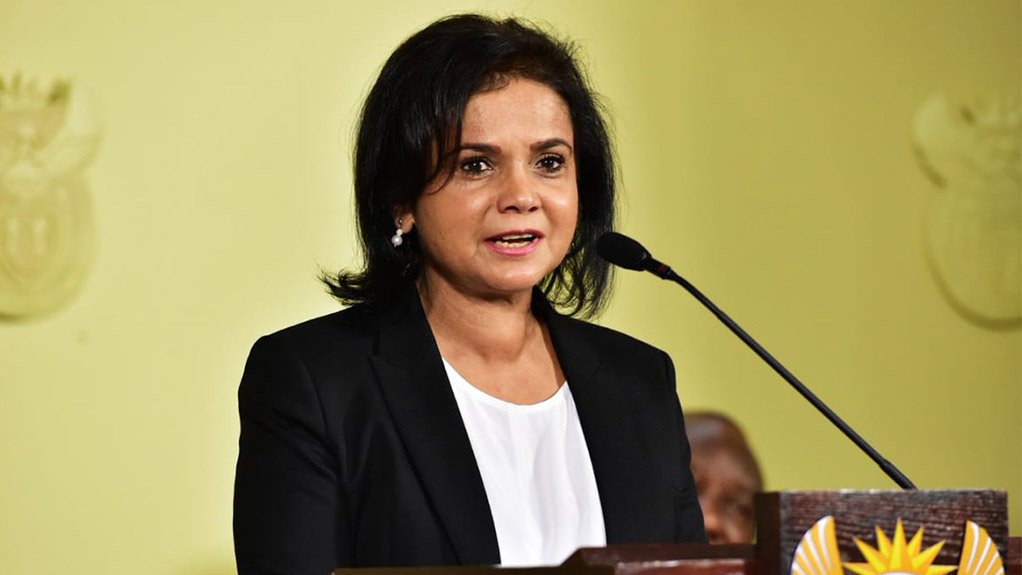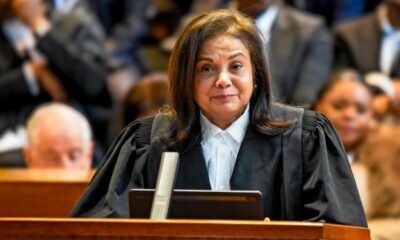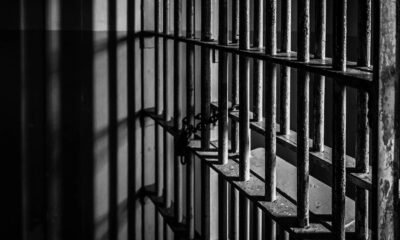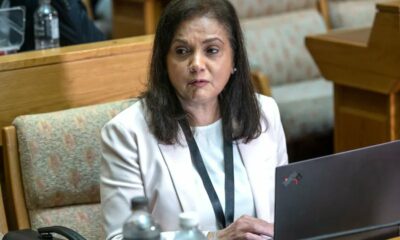News
Inside the Nkabinde Inquiry: Batohi Challenges Chauke’s Conduct Under Oath

The room was quiet when Advocate Shamila Batohi continued her evidence at the Nkabinde Inquiry, a moment that placed the inner workings of South Africa’s justice system in clear public view. As the National Director of Public Prosecutions, she is not often the one answering questions. On this occasion, she stepped forward, speaking not only as a leader but as someone carrying the weight of duty on her shoulders.
The Inquiry is examining whether Gauteng’s Director of Public Prosecutions, Advocate Andrew Chauke, remains fit to hold office. It follows a formal complaint submitted by Batohi herself. She did not pretend this was an easy step. Her words were calm but carried a hint of strain as she acknowledged that sending a colleague to an inquiry is never simple in a professional environment built on trust.
Yet she said she had a responsibility to the public and to the Constitution. For her, that responsibility could not be pushed aside.
Why This Inquiry Matters
The proceedings are chaired by retired Justice Bess Nkabinde. They centre on two major prosecutorial controversies that have lingered in the justice system for years. The first involves racketeering charges brought against Major General Johan Booysen and the Cato Manor Organised Crime Unit. The second concerns the discontinuation of murder charges against former crime intelligence boss Lieutenant General Richard Mdluli.
These decisions shaped public confidence in the National Prosecuting Authority. They raised questions about whether political influence, pressure from powerful individuals, or internal dynamics may have affected outcomes.
Chauke, who has served as Gauteng DPP since 2011, was suspended by President Cyril Ramaphosa in July 2023 while the inquiry runs its course.
Batohi’s Stand on Integrity and Pressure
Batohi’s testimony focused strongly on the standards set out in the NPA Act and the prosecutorial code. She spoke clearly about what those rules demand. A prosecutor must act with truthfulness, independence, and absolute integrity. According to her, this is not aspirational language. It is non-negotiable.
She warned that influence from politicians, wealthy figures, the media, or civil society organisations has no place in prosecutorial decisions. Without independence, she argued, the justice system cannot function.
When asked about the argument raised by Chauke’s legal team that he was being unfairly punished for doing his job, she did not hesitate. She rejected that assertion outright, stating that the matter is far from that picture.
What the Evidence Covers
On Wednesday, she described the structure of the NPA and the responsibility placed on senior prosecutors. On Thursday, she continued with detailed evidence relating directly to Chauke and the allegations surrounding his conduct.
She pointed to the Booysen and Cato Manor matter, suggesting that the racketeering charges were pursued despite a lack of evidence supporting them. She also raised concerns about the decision not to pursue charges against Richard Mdluli, even though she said strong evidence existed. Batohi added that both matters occurred before she took office but still require scrutiny.
Evidence Leader Advocate David Mohlamonyane SC is guiding her through each part of the record to ensure that the panel receives a full and proper account.
A Moment That Reflects a Larger Conversation
For many South Africans, the Nkabinde Inquiry represents something deeper than one official’s suitability for office. It touches on wider concerns about transparency, political influence, and consistency within the justice system.
Social media has been sharply divided, with some users praising Batohi for taking a principled stand and others questioning whether this marks a shift in longstanding internal tensions within the NPA. South Africa has seen many high-profile legal controversies. Moments like this reopen discussions about who holds power within the system and how accountability is enforced.
As the Inquiry continues, Batohi remains clear that her role is guided by the Constitution and the expectations of the public. It is a reminder that leadership in the justice sector is not only about legal expertise. It involves moral courage, public trust, and the willingness to confront uncomfortable truths.
Follow Joburg ETC on Facebook, Twitter, TikT
For more News in Johannesburg, visit joburgetc.com
Source: IOL
Featured Image: Polity.org.za



























